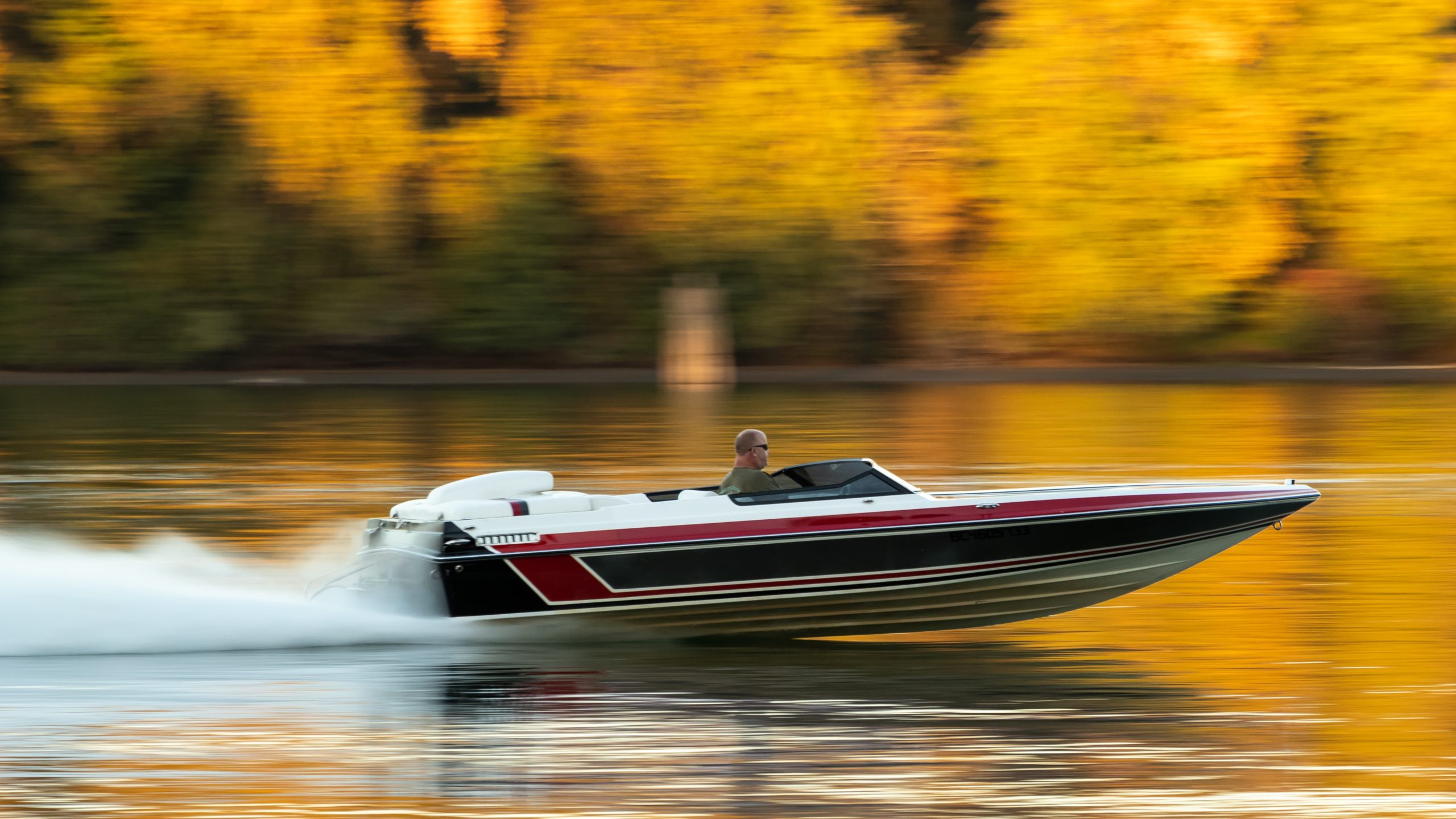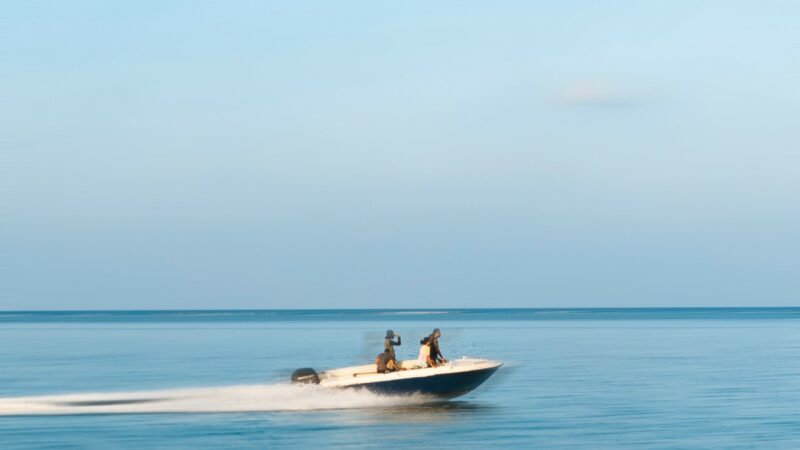What gasoline to use for a boat engine?

A marine engine is a complex mechanism that needs the right fuel to run at peak efficiency. Certain inboard engine runs on diesel and there are no questions to ask at the gas station. However, for gasoline boat engines, it is better not to be mistaken. Indeed, the supply of fuels for gasoline engines has expanded in recent years: E10, SP95, SP98... And many boaters are wondering which fuel is most suitable for their boat engine. Using the wrong gasoline can be fatal to your inboard or outboard engine. It is therefore necessary to choose your fuel carefully. In this guide, we explain what gasoline to use for a boat engine. We will explain the advantages and disadvantages of each fuel as well as the different opinions of nautical professionals: marine engine builders and mechanics. Finally, if you have already used an unsuitable fuel in your outboard or inboard engine, we will give you solutions so that it regains the best performance.
The fuel offer has evolved at the petrol station: SP95, SP98 and E10
Many boat owners have seen, to their dismay, the unleaded 95 disappear from gas stations. Indeed, the SP95 is replaced by the SP95-E10 (also simply called E10) for environmental reasons. This new fuel raises many questions for sea enthusiasts. Is E10 gasoline compatible with boat engines? Are there any risks in using SP95-E10 fuel on outboard or inboard engines? What to replace the SP95 that has disappeared and what is the fuel recommended by manufacturers for an outboard or inboard boat engine?
We will answer all these questions in the rest of this article on the best gasoline for a boat engine.
ATTENTION: it has been reported that some gas stations sell E10 while the pump indicates SP95 fuel.
Can I use E10 gasoline for a boat engine?
What is E10 or SP95-E10 gasoline?
SP95-E10, also called E10, is a fuel that contains 95% octane and 5% heptane. But we replaced 10% of this so-called 'fossil' gasoline with ethanol for environmental reasons. Indeed, the ethanol in E10 gasoline is an alcohol that comes mainly from beets or wheat – and not from fossil fuels. E10 is therefore an agrofuel which has different properties from the usual unleaded 95. Note, for example, that during combustion, ethanol alcohol produces much more water vapour.
Is it recommended to fill the tank of an outboard or inboard boat engine with E10 gasoline?
What do the boat engine manuals about E10 gasoline? As you read, you realize that there is often no information on E10 fuel for older boat engines. Obviously, the manufacturers could not give an opinion on a fuel that did not exist! On the other hand, in the more recent manuals, the manufacturers do not advise against the use of E10 gasoline for their outboard or inboard engines. So in theory, SP95-E10 gasoline is compatible with a boat engine. But is this really the case in practice?
NB: it is important to note that the manufacturers' warranty will apply if you damage your boat engine with E10 gasoline. Indeed, the warranty remains valid if the E10 fuel is not explicitly advised against in the manual!
The opinion of mechanics on the use of E10 fuel in boat engines
Unlike builders manuals, marine mechanics are formal. SP95-E10 fuel should not be used in a boat engine. This is valid for outboard or inboard engines of 100hp or more as well as for small 6hp or 25hp boat engines (the number of horsepower has nothing to do with the problems caused by E10 gasoline).
So in practice, even if the builders' manual does not advise against the use of E10 gasoline, it is better to refrain from using it in your marine engine. In the short term, your outboard or inboard engine will not perform well and in the long term, E10 fuel can damage it.
What are the effects of E10 fuel on a boat engine?
E10 fuel was designed for cars. It is perfect if used quickly. But unlike the car we use every day, a boat motor can go months between uses. So that's the problem!
When E10 fuel sits in the boat's tank for many weeks or months without being used, the 10% ethanol alcohol will dissociate from the gasoline. Once free, the ethanol will go on to damage many parts on your outboard or inboard motor. In addition, by separating from the gasoline, the alcohol will fall to the bottom of the tank and create residues.
The long-term consequences of this ethanol/gasoline separation are numerous:
- Risk of drying out and fuel system clogging,
- Corrosion of many parts (hoses, seals, etc.),
- Aggravated damage to fuel pump, carburettor, injectors, etc.
- Insufficient action of engine lubricant (with serious consequences during use)
But it is not finished ! Indeed, once the E10 gasoline has stagnated and it is dissociated, you will one day or another restart your boat engine! At that time, gasoline will have lost 10% ethanol. The fuel will therefore no longer have enough octane to guarantee optimal engine operation. The performance of your outboard or inboard engine will then drop:
- Power drop when accelerating (this is very striking when towing a water ski for example).
- Increased fuel consumption to compensate for the missing octane.
Finally, the E10 fuel also causes knocking on your boat engine. These knocks are caused by a higher percentage of water than fuel. Indeed, SP95-E10 gasoline is naturally composed of 0,5% water in suspension. The 10% ethanol alcohol therefore mixes very easily with the humidity of the ambient air…
What if I used SP95-E10 fuel in an outboard or inboard engine?
There is no reason to panic if you have used SP95-E10 gasoline in an outboard or inboard engine. Some boaters are forced to use E10 fuel because they cannot find unleaded 95 at petrol stations. But to avoid all the catastrophic consequences on their boat engine, they use stabilizing products. These products reduce the harmful properties of ethanol on marine engines.
(a 500ml bottle will be enough to treat 100 liters of E10 gasoline).
NB: if you did not add stabilizer to your tank when purchasing E10 fuel at the petrol station, know that you can do it later. Indeed, one of the many benefits of these additives is that they can even regenerate gasoline that has been sitting for weeks.
How can a stabilizer product help my outboard or inboard engine?
Stabilizing products will:
- Prevent the ethanol in E10 (and even SP95) from dissociating from gasoline
- Prevent ethanol from mixing with moisture in the air
By preventing this, fuel stabilizers will ensure that the E10 gasoline in your tank stays the same despite weeks or months of inactivity.
It is therefore absolutely necessary to add a good additive in the tank of his outboard or inboard motor if using E10 gasoline.
In addition, these stabilizers also have other advantages. In particular, they will make it easier to start your engine and even allow you to reduce your fuel consumption!
How do I use stabilizer with E10 gasoline in my outboard or inboard engine?
You just need to pay the stabilizer into the fuel circuit via the fuel filler. Next, be sure to run your outboard or inboard motor at idle. Put yourself in neutral for at least 5 minutes. This will help distribute the fuel/additive mixture throughout the system.
NB: the stabilizers act for 1 year. It is therefore extremely advisable to use some during wintering if there is still E10, SP95 and even SP98 gasoline in the tank of your boat engine.
Can I use SP95 gasoline for a boat engine?
Unleaded Gasoline 95 (SP95) is composed of 95% octane and 5% heptane. Manufacturers recommend this fuel for all their boat engines despite a high percentage of ethanol. In fact, SP95 gasoline contains 5% ethanol (therefore 50% less than E10 gasoline).
The SP95 is a much better solution for your marine engine than the SP95-E10. It can also be used with an additive although the risks are much lower than with E10 fuel. In practice, we will say that the SP95 + stabilizer mixture is a good habit when you want to take care of your outboard or onboard motor over the long term.
SP95 was the most used fuel by boat engine owners because it was cheaper than SP98. Unfortunately, it was gradually replaced in gas stations by the SP95-E10.
Can I use SP98 fuel for a boat engine?
Unleaded Gasoline 98 (SP98) is composed of 98% octane and only 2% heptane. Manufacturers recommend this fuel for all these boat engines without explicitly preferring it to SP95. Bearing for marine mechanics, the choice is clear! 98 unleaded gasoline is the best choice for a boat engine.
At the pump, SP98 is more expensive than SP95. This is why many boat owners preferred the SP95. But now that the SP95 is gone, there is no choice but the SP98.
However, we have good news for your budget. Despite a higher price per litre, the SP98 makes up for it by providing a better performance from your outboard or inboard motor. In other words, your marine engine will need to run slower to achieve a similar speed. It will therefore consume less gasoline and the difference in fuel price will be compensated.
E10, 95 or 98 gasoline: which gasoline to use for a boat engine?
To conclude, we recommend that you first refer to your marine engine manual. If nothing is specified on a particular fuel, you are sure not to lose the guarantee.
Then, to sum up the question 'what gasoline to use for a boat engine ?' we recommend :
- To use unleaded 98 (SP98) as a priority in the tank of your marine engine even if it is more expensive per litre,
- To use SP95 as a second choice with a fuel stabilizer (if you can still get unleaded 95 at gas stations…)
- Not to use E10 gasoline unless you have no choice. In this case, it is mandatory to add a stabilizing product to your outboard or inboard motor.
View Best Liqui Moly Gasoline Stabilizer 500ml
See the best Facom fuel stabilizer 250ml
Finally, you should know that owners of recent outboard or inboard engines have already tried to sail with SP95-E10 gasoline. Even if the manufacturers do not give any contraindication, many of them have complained of engine problems without explanation. And they are all unanimous in saying that these worries disappeared once the gasoline was replaced by SP98 fuel.
Learn more about boat motors:
Which boat engine consumes the least?

